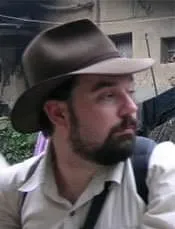About the project
Marine plankton communities are a fundamental component of the Earth system. They support food webs, drive global biogeochemical cycles, and play a central role in the regulation of Earth’s climate1. These ecosystem functions are carried out by an extremely diverse microbial community, and predicted changes in biodiversity and biogeography are therefore likely to have important impacts within the Earth system. Species distribution models (SDMs) have proved to be a powerful method for estimating contemporary plankton biogeography and biodiversity. However, they make a number of important and somewhat unrealistic assumptions2, especially in relation to marine microbial communities. Most notably, they neglect the known capacity of microbial species to rapidly evolve, and they do not account for dispersal by ocean currents. With SDMs increasingly being applied to predict the future response of marine communities to environmental change it is important that these sources of error and uncertainty are quantified. The aim of this project is to use a simulated ‘virtual ecosystem’3 to assess how evolution, dispersal and a range of other potentially important factors may impact the predictive skill of SDMs. This will improve our ability to understand how marine microbial biodiversity and biogeography will continue to be impacted by ongoing climate change.
For full project details visit the Inspire project page.
Supervisors:
- Neil Gostling (University of Southampton)
- Jeffrey Thompson (University of Southampton)
- Claire Clarkin (University of Southampton)
